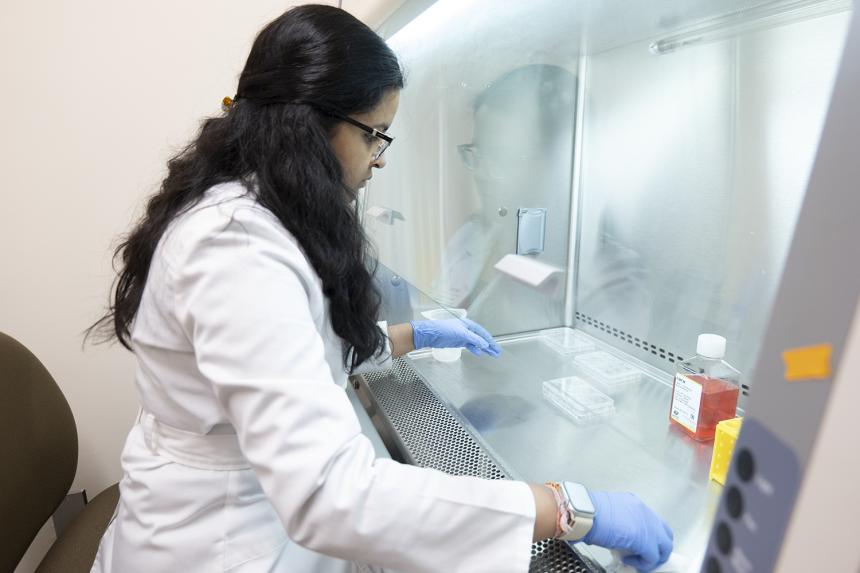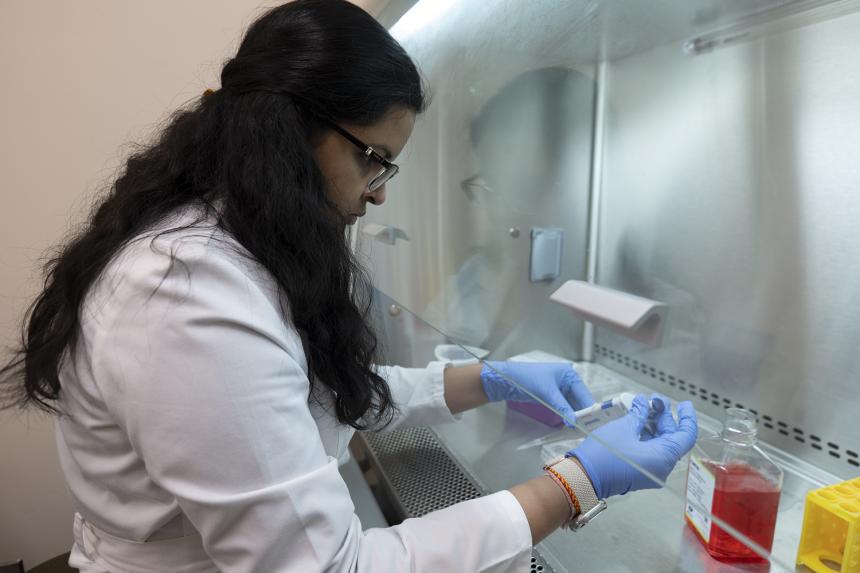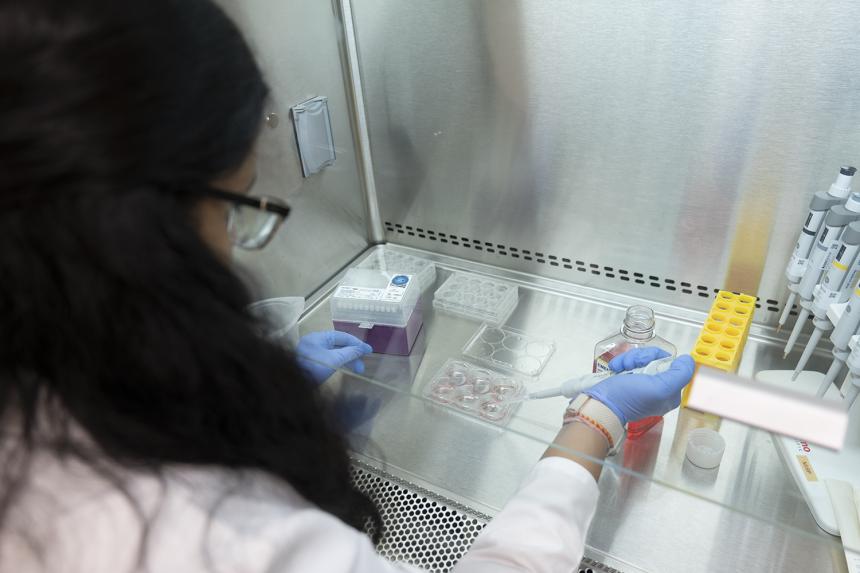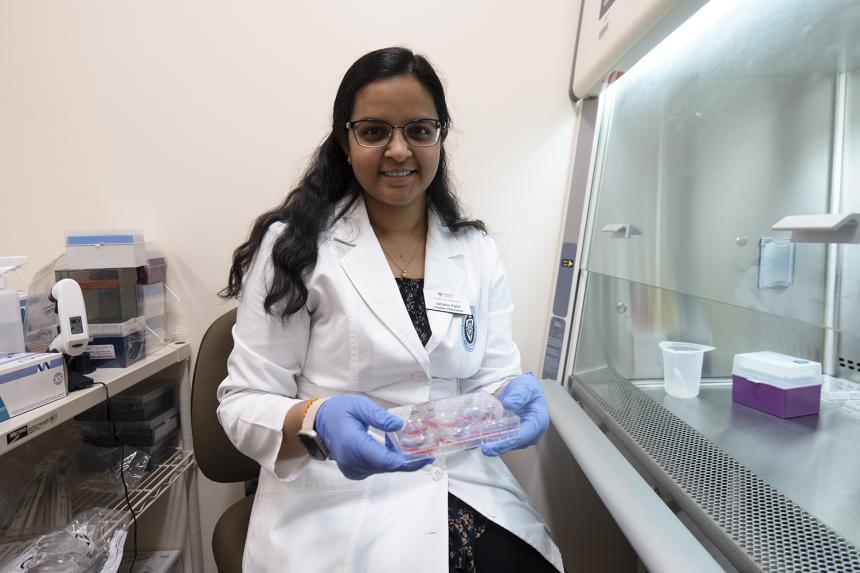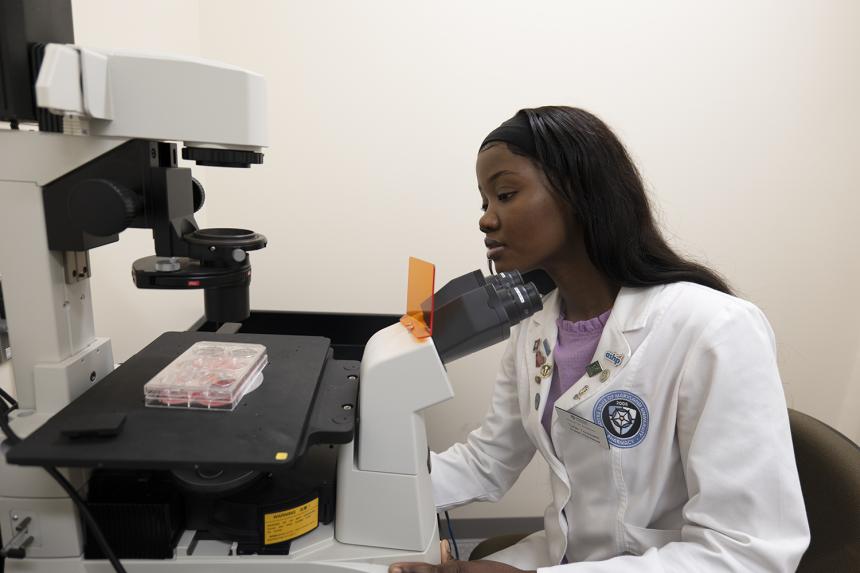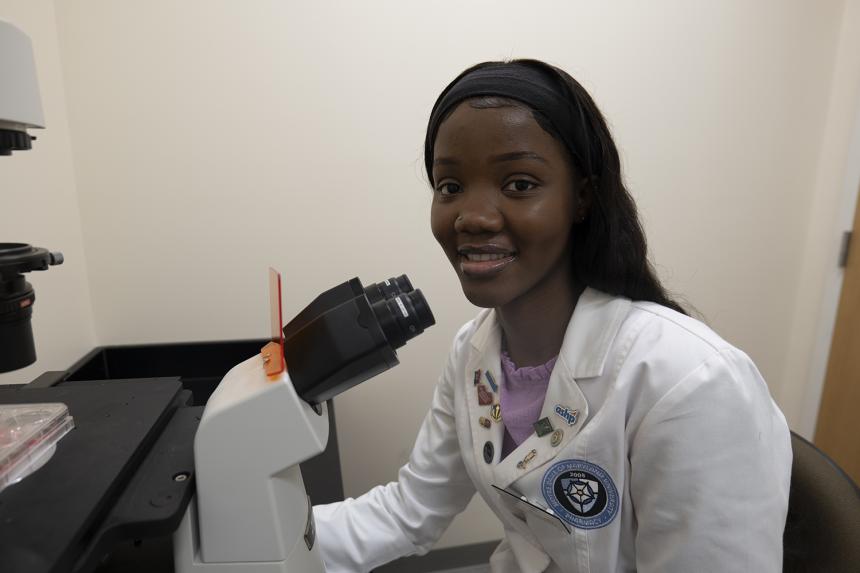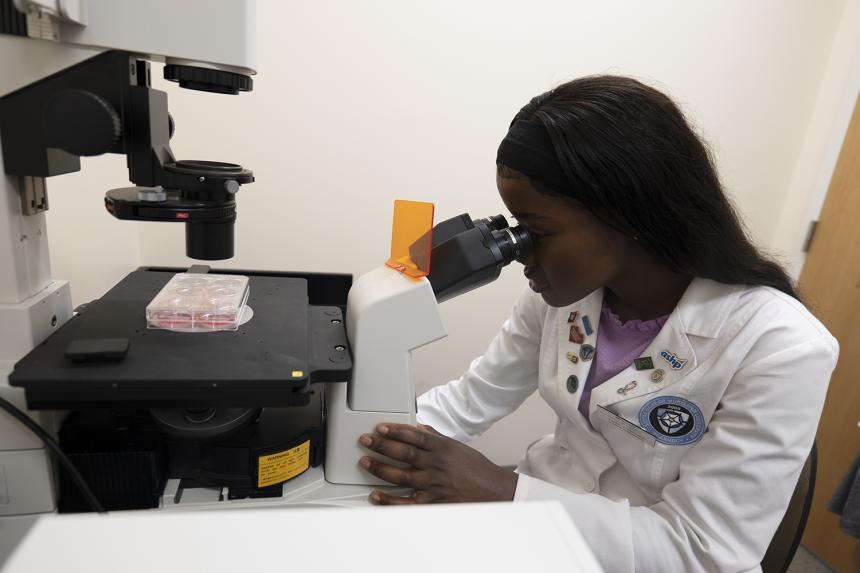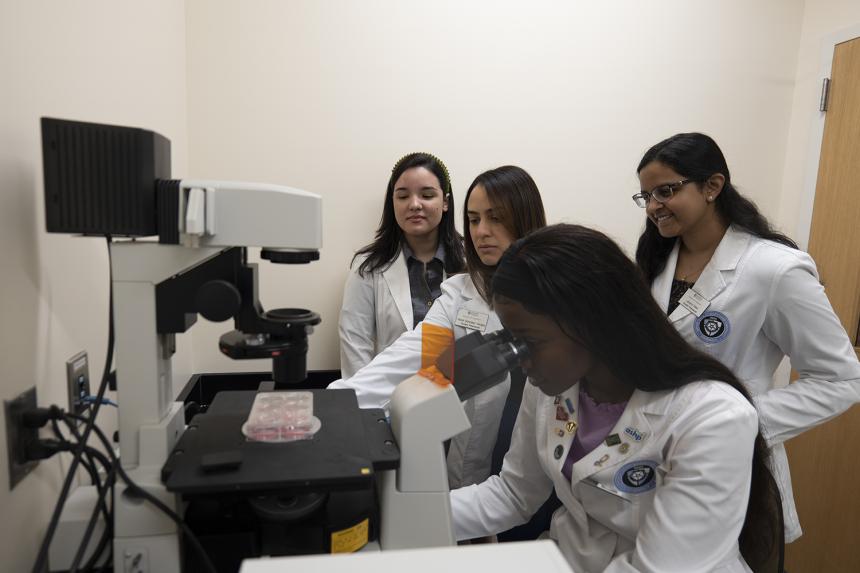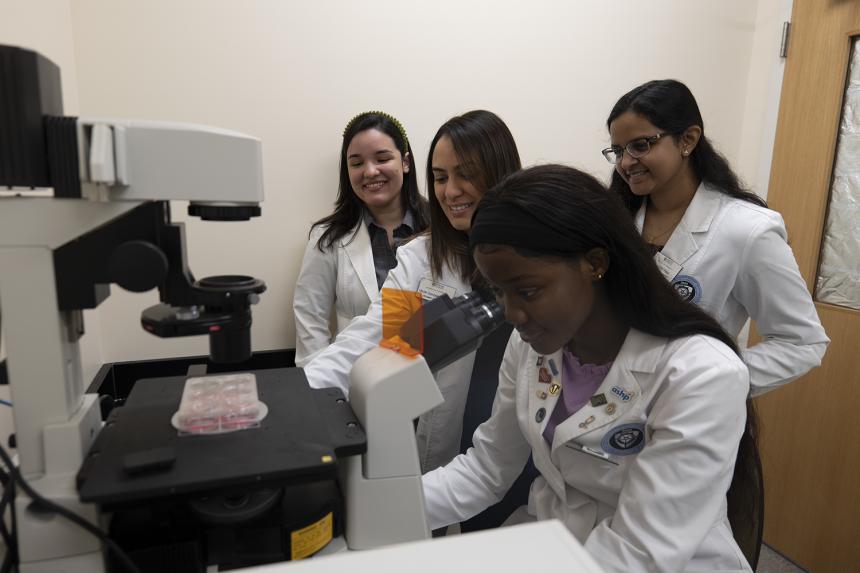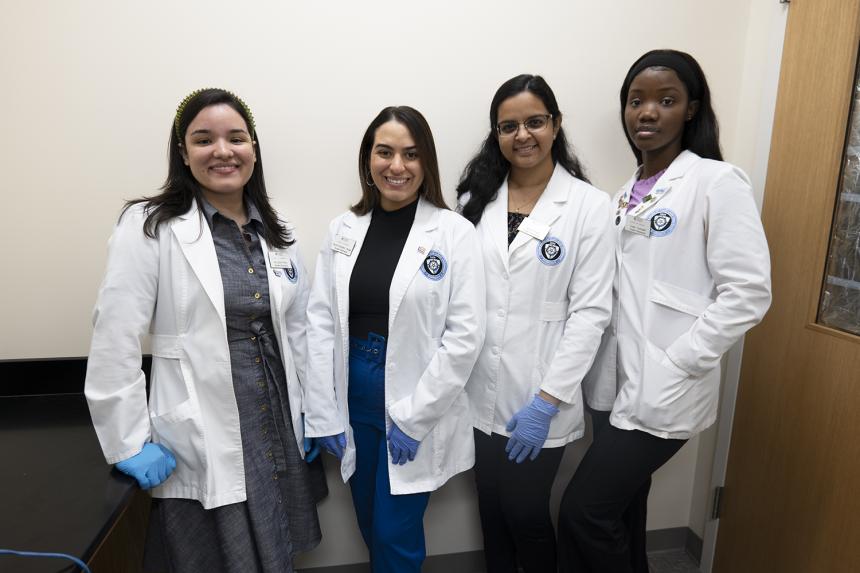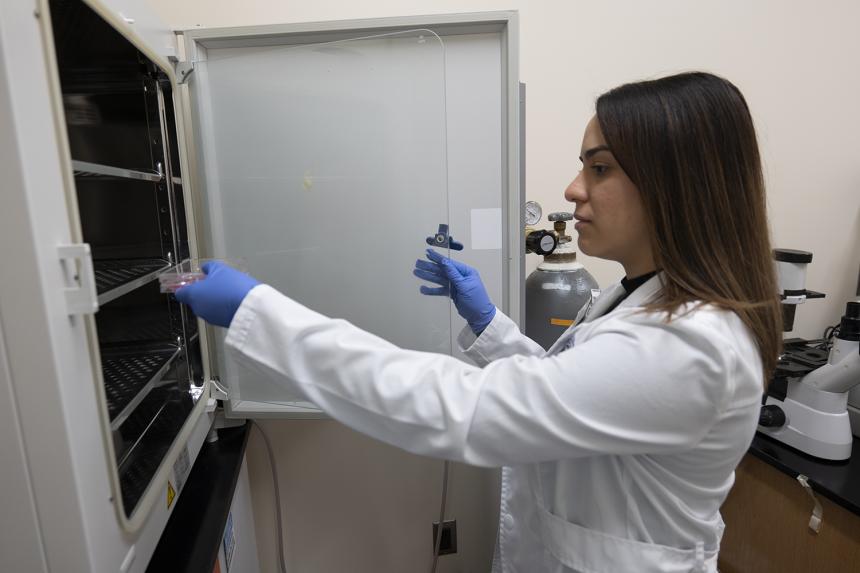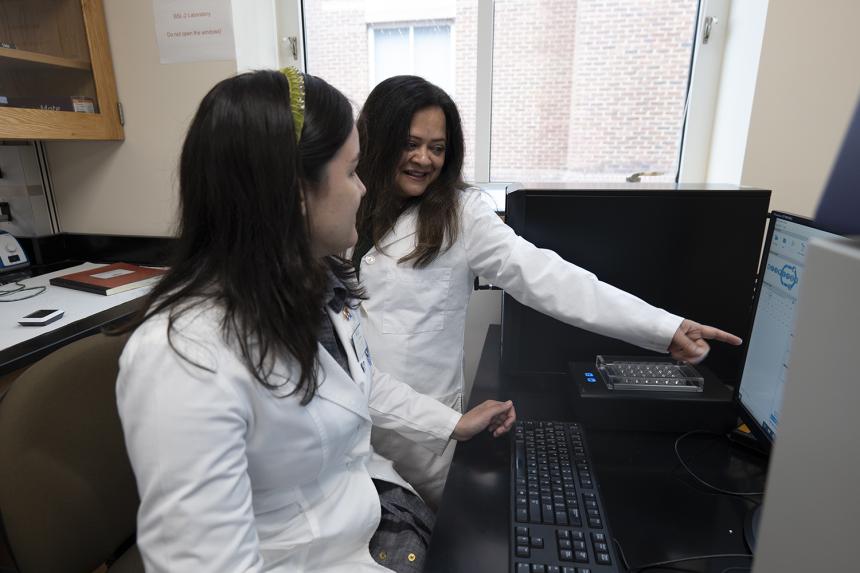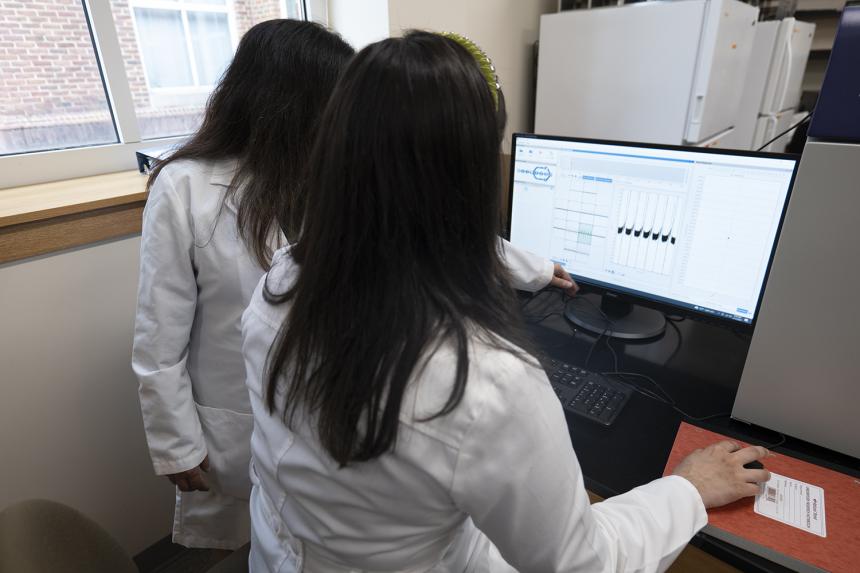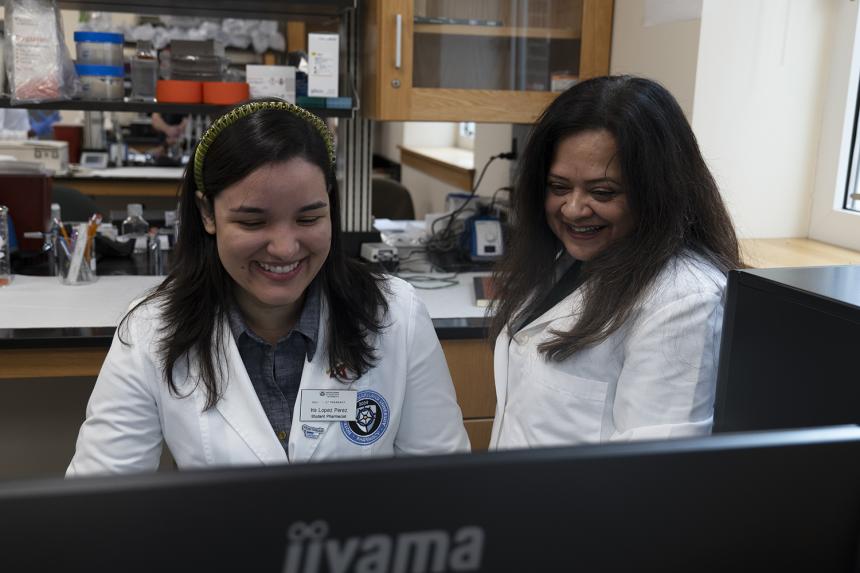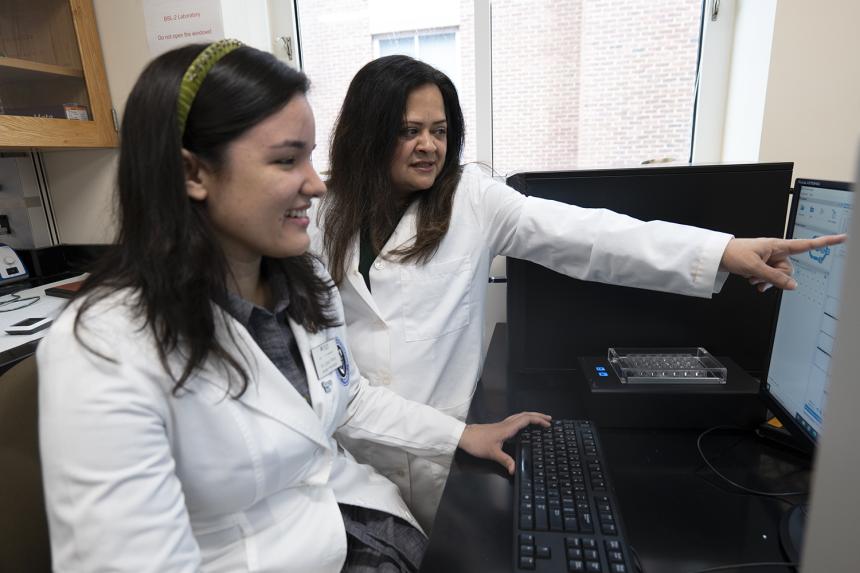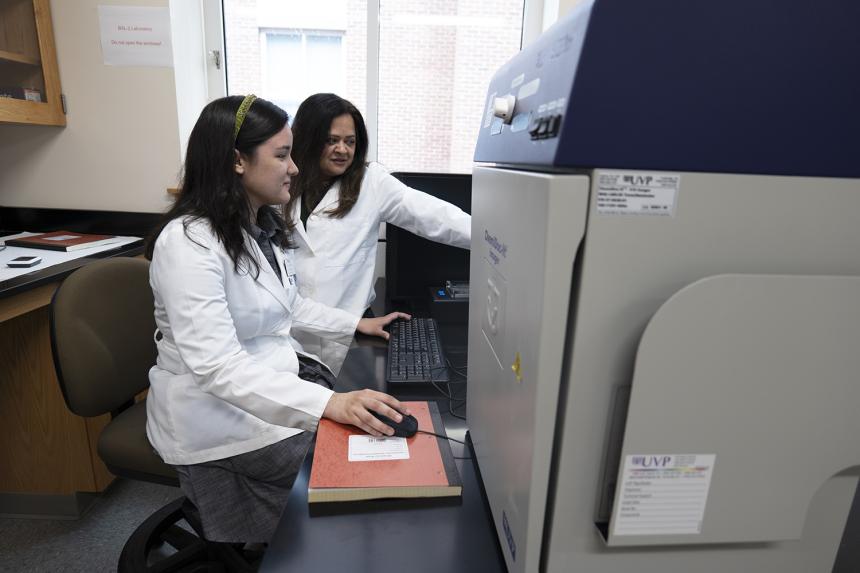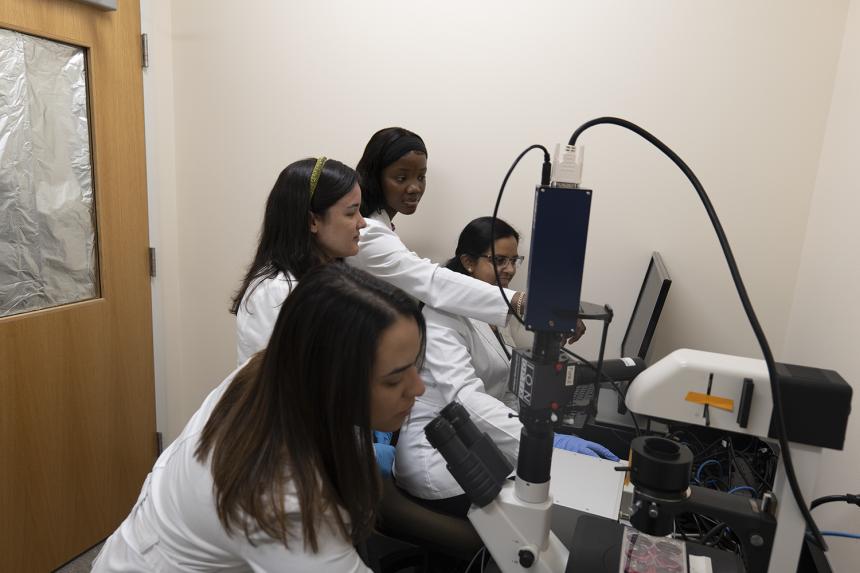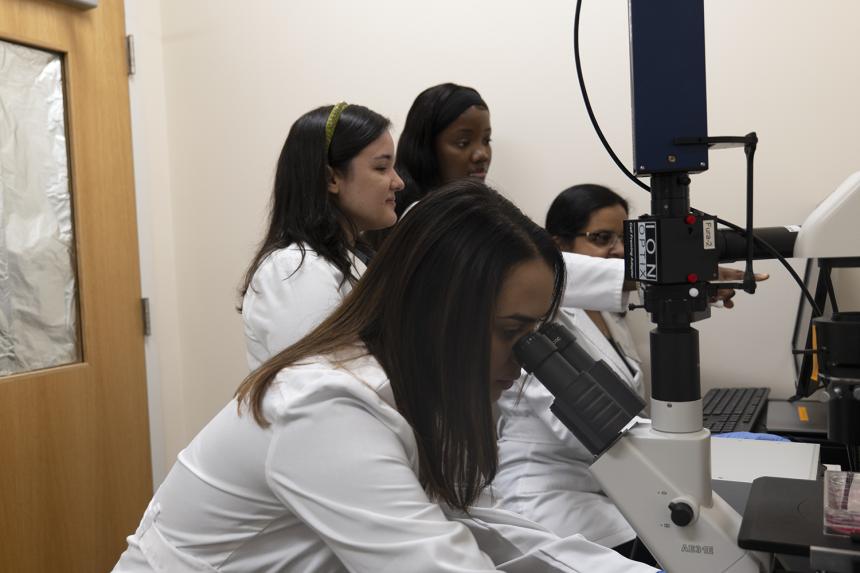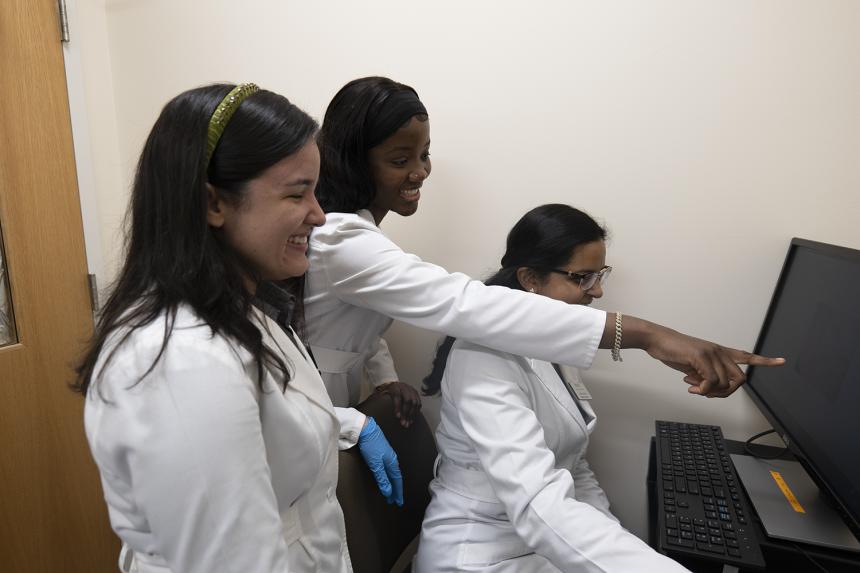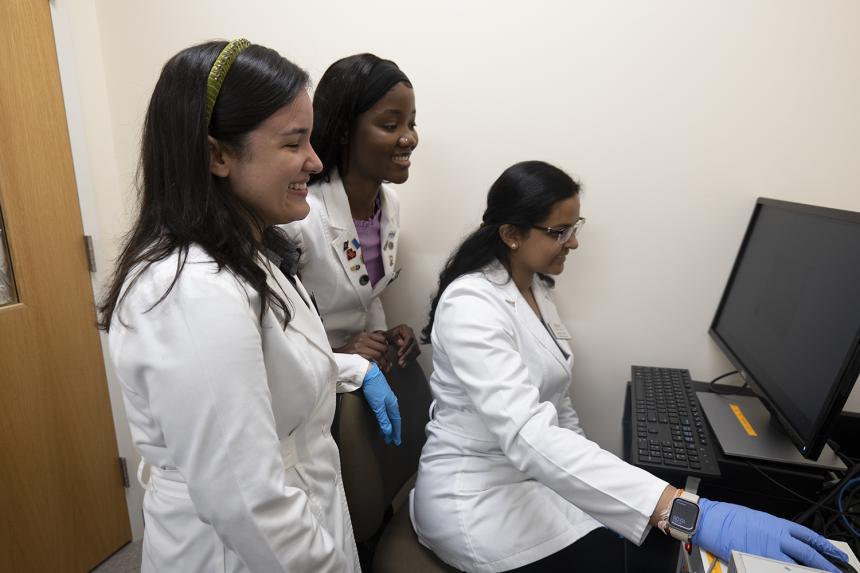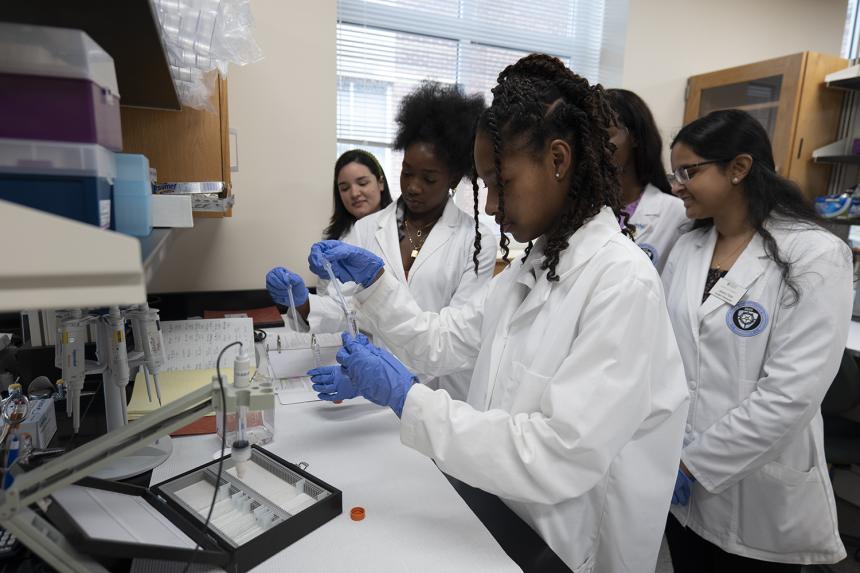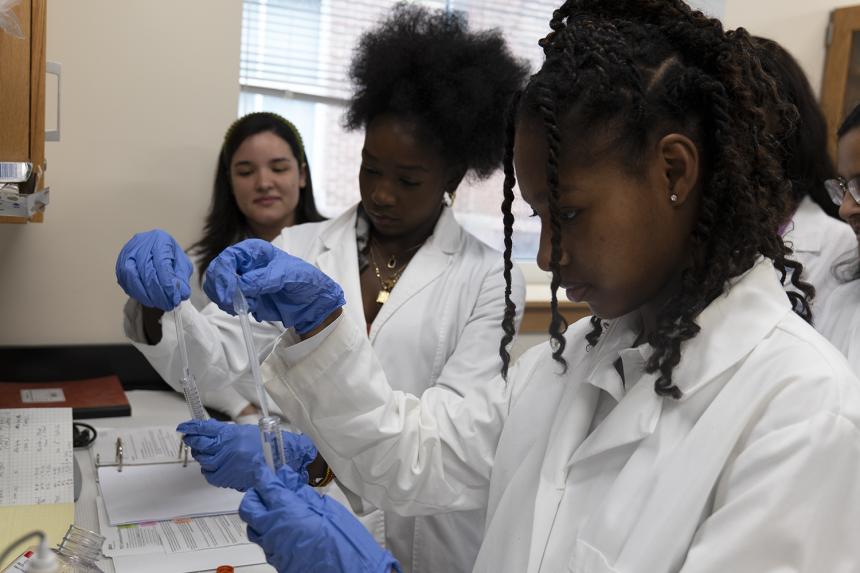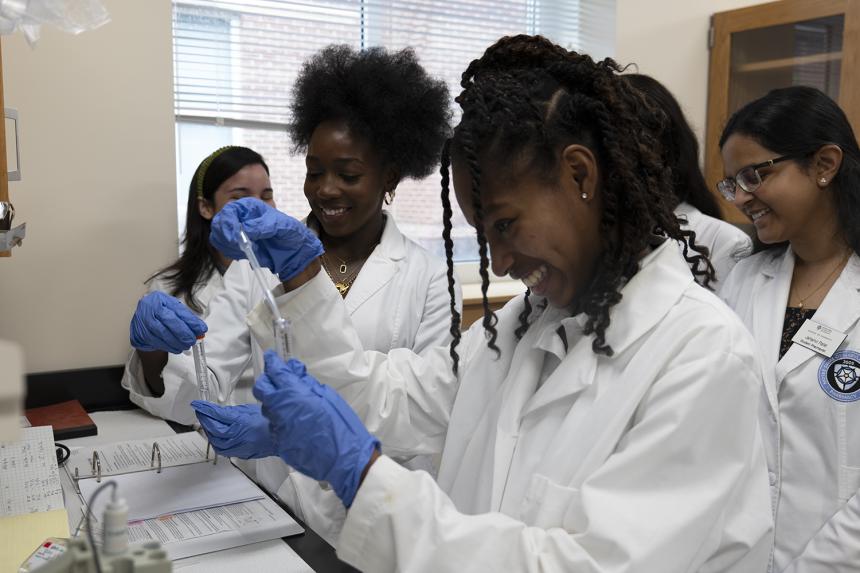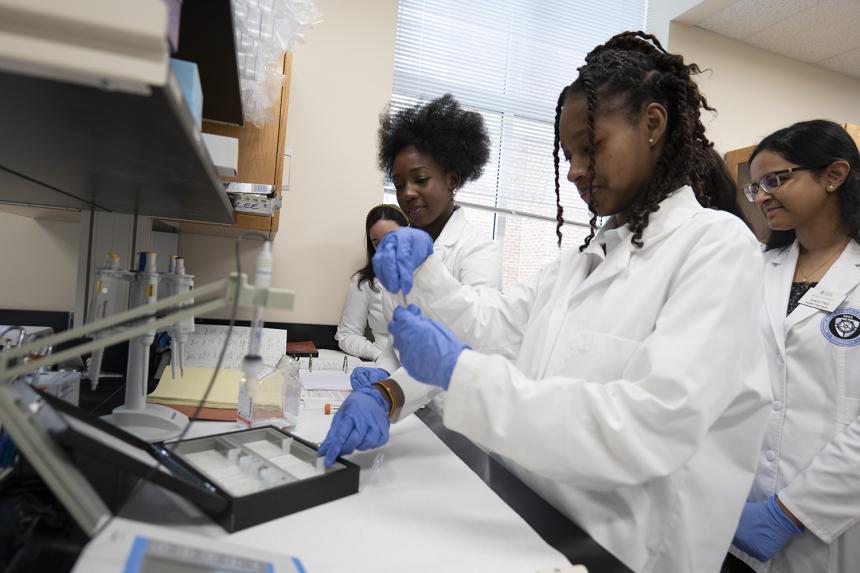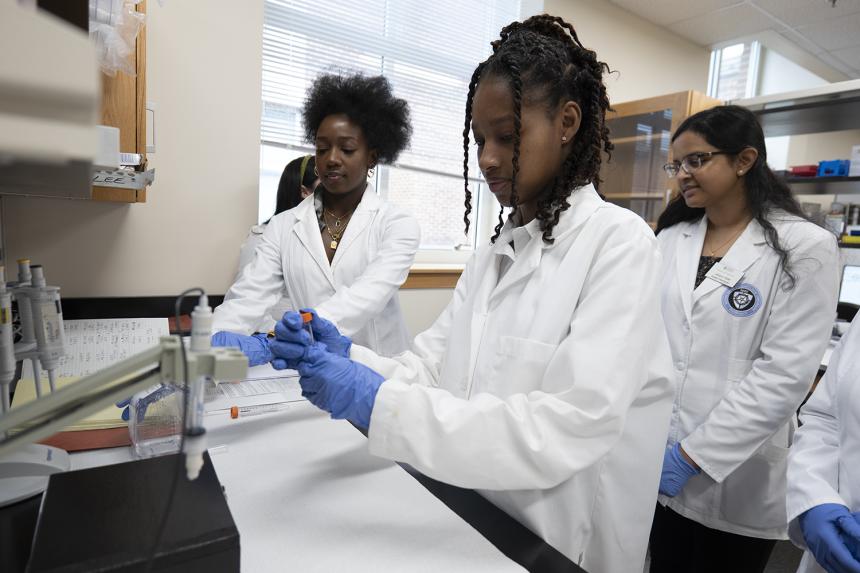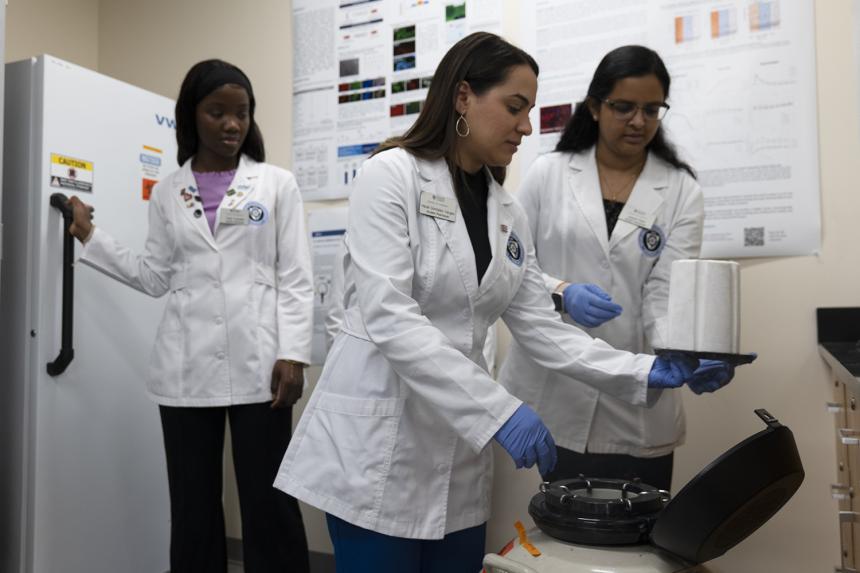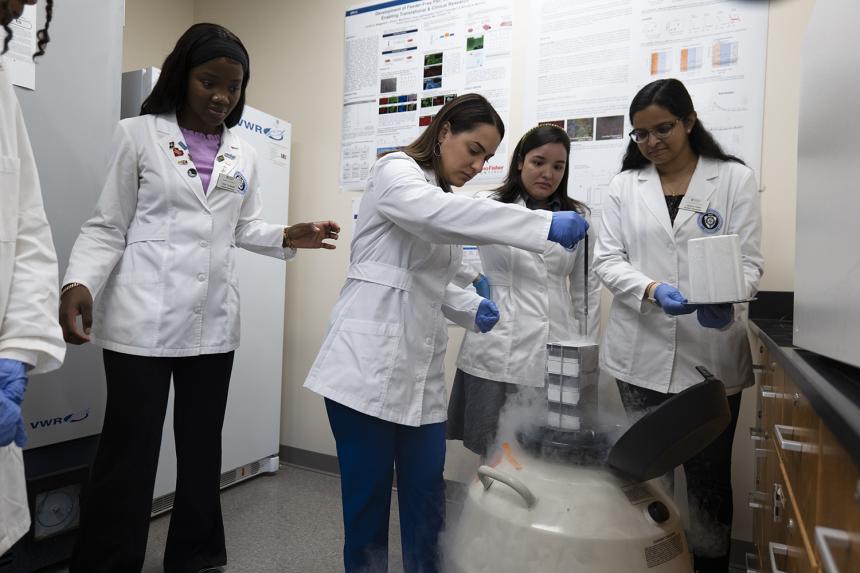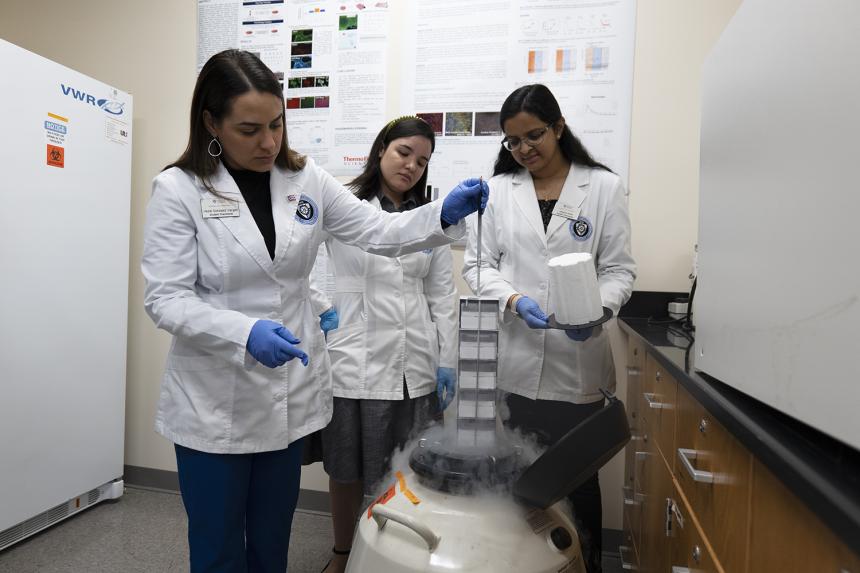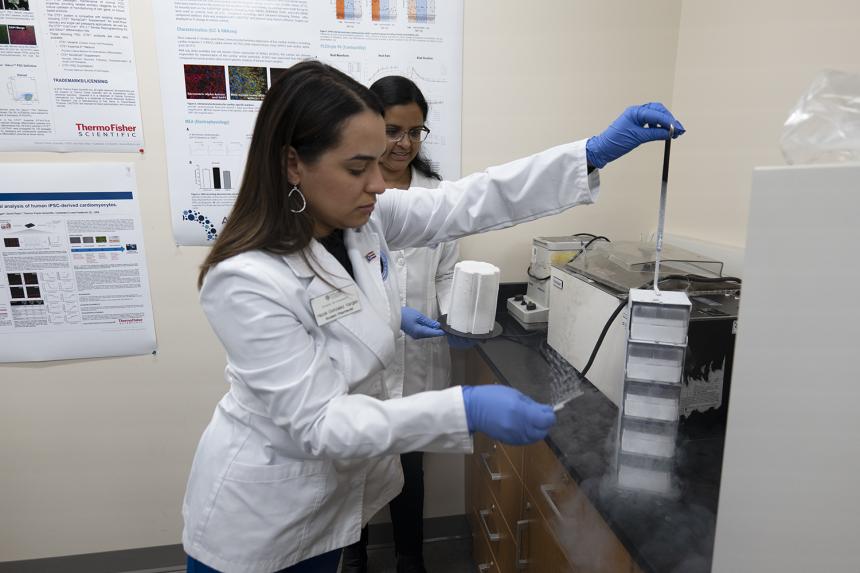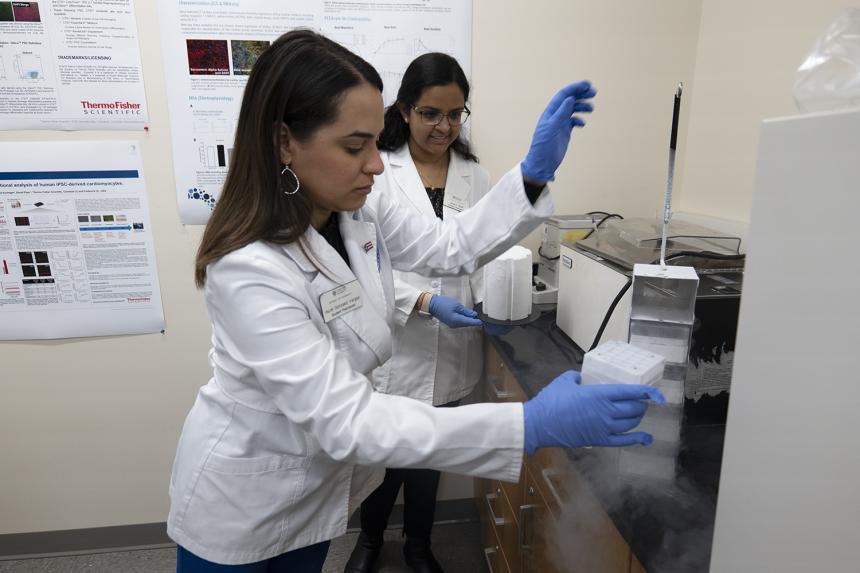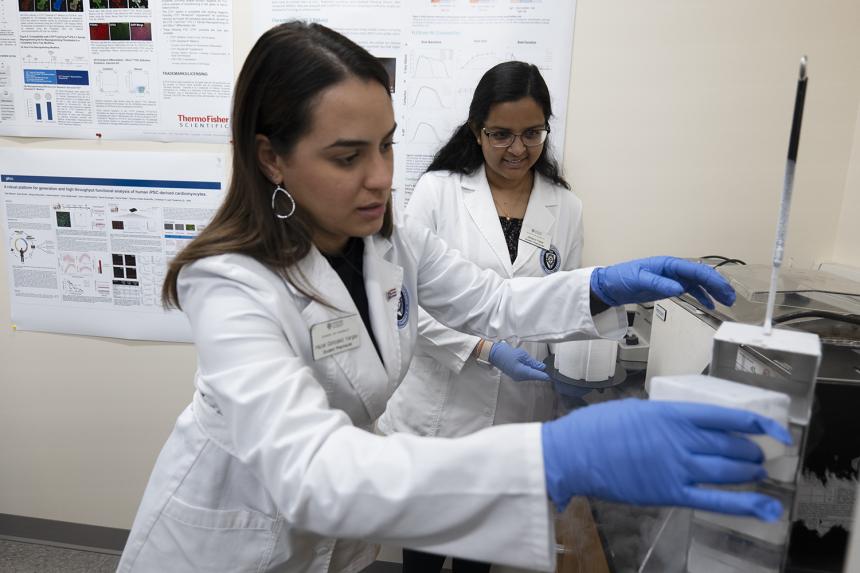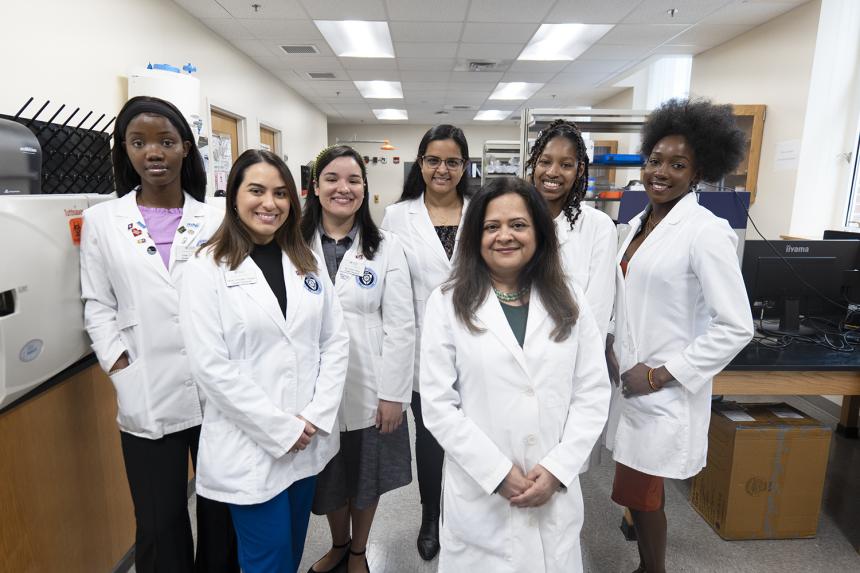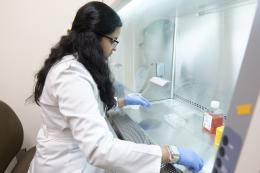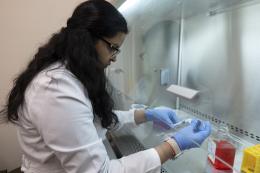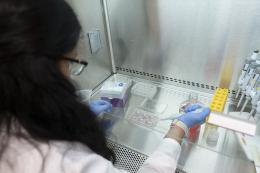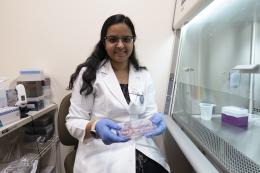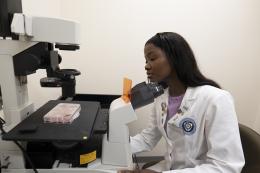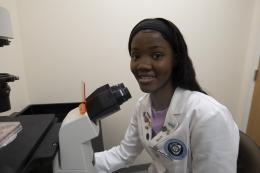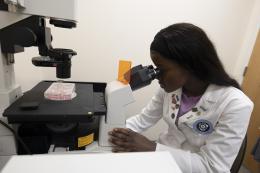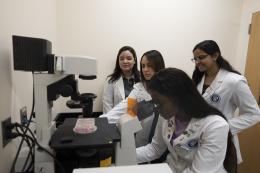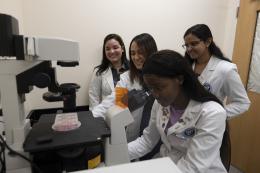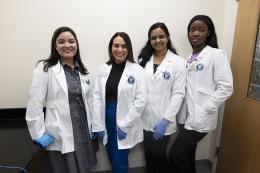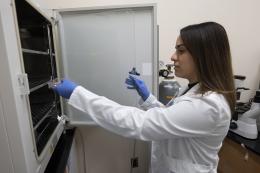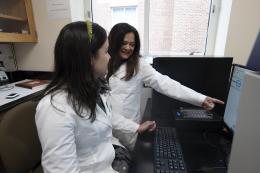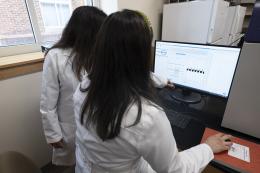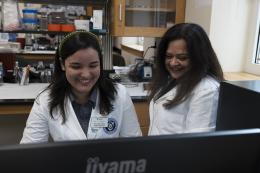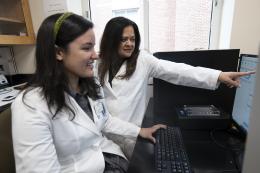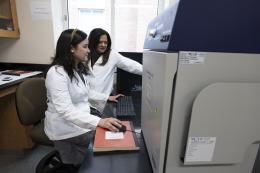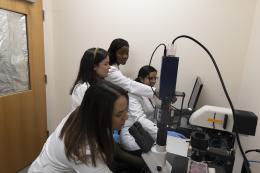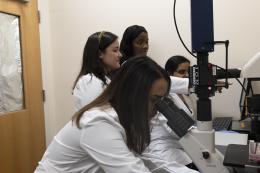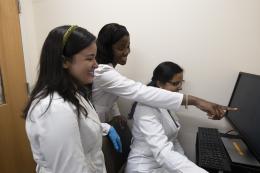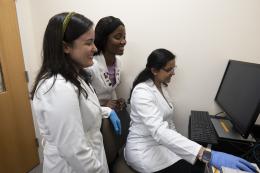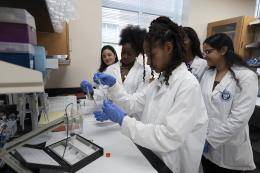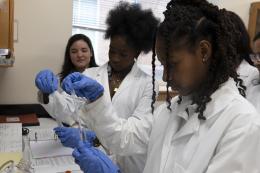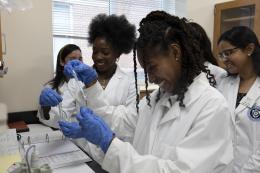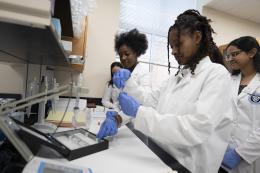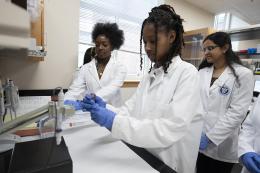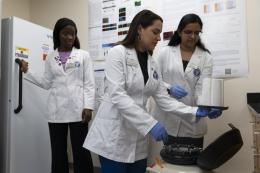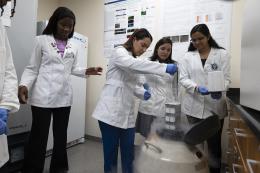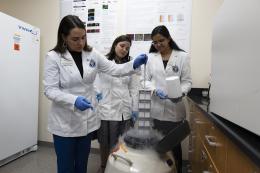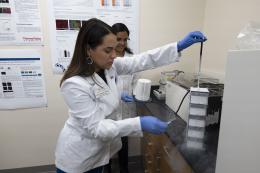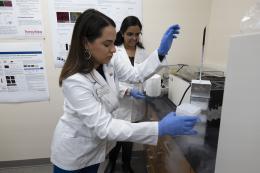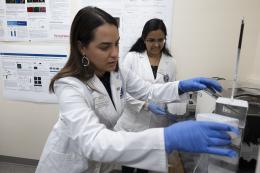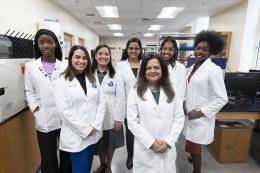School of Pharmacy Professor Creates Student Research Hub Investigating Drug Effects on Stem Cells
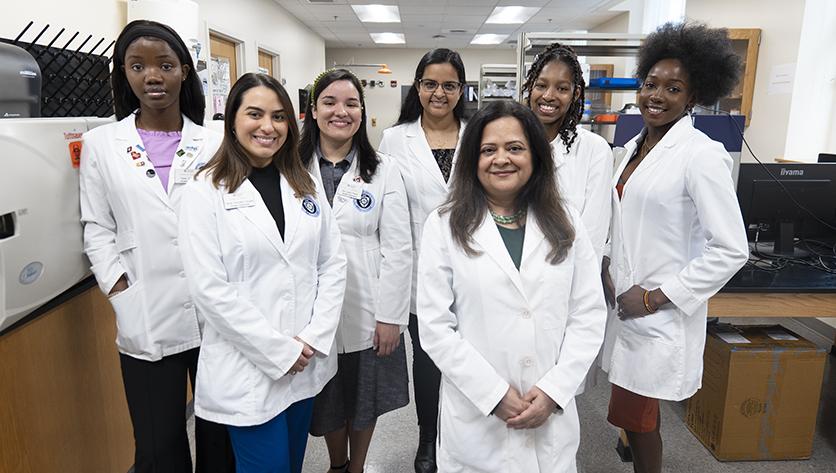
By: Erik Pedersen, Content Strategy Director
BALTIMORE – A School of Pharmacy professor has created a research hub for both doctoral-level pharmacy students and undergraduates at Notre Dame of Maryland University, where students explore the effects of medication on stem cells. By acquiring donated high-powered equipment to examine the heart’s electrical activity, Dr. Rosy Joshi-Mukherjee has transformed an underutilized campus laboratory into a place where students are uncovering the latest discoveries in stem cell research.
An assistant professor in the Department of Pharmaceutical Sciences, Dr. Joshi-Mukherjee has dedicated her career to stem cell and heart cell research. Recently, she outfitted the campus lab with state-of-the-art electrophysiology equipment, valued at over $200,000, that she secured from her previous employer, Aurora Health Care in Wisconsin. At Aurora, Dr. Joshi-Mukherjee’s research focused on how drugs affect the health of heart cells derived from stem cells.
This past year, students at NDMU conducted stem cell research to investigate how prescription drugs may affect heart muscle cells known as cardiomyocytes. Led by Dr. Joshi-Mukherjee, four pharmacy students – Hazel Gonzalez Vargas D’25, Iris Lopez-Perez D’25, Jahanvi Patel D’25, and Tania Toussaint D’25 – investigated how a common anticancer drug, doxorubicin, affects stem cells and cardiomyocytes. The students presented their findings at NDMU’s annual Nancy Kreiter Research Day in April.
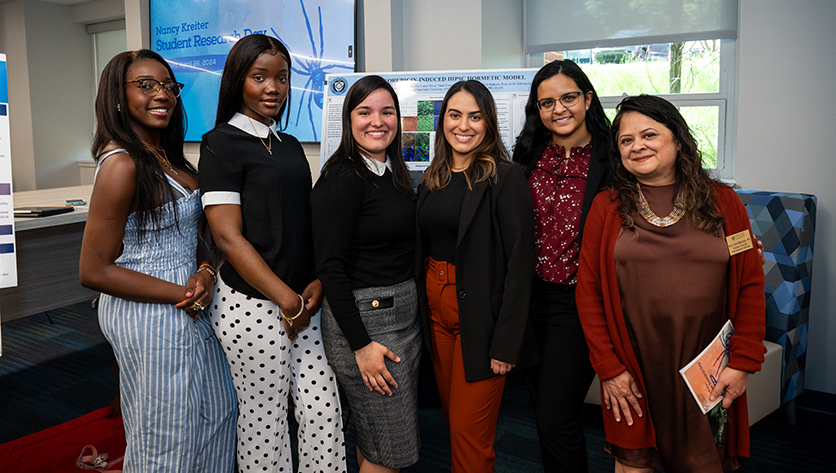
“In a clinic, you see a medication improve a patient’s condition, but the how remains a mystery,” Dr. Joshi-Mukherjee explained. “Here in the lab, we can delve deeper. We can study the drug in controlled settings to understand the fundamental mechanisms by which they target and alter cell function.”
“This experience was very eye-opening for me,” said Lopez-Perez. “It’s one thing to learn about drugs and medications in a classroom setting, but it’s another to come into a lab, work with them directly, and see how everything comes together.”
Dr. Joshi-Mukherjee’s research elective course provided students with invaluable hands-on experience in diverse stem cell research techniques, enabling students to delve into various stem cell research techniques for their elective research project. The School of Pharmacy has two primary labs in Bunting Hall – one focuses on cell biology, pharmacology, and electrophysiology, while the other specializes in biochemistry research.
“There are so many things that I was able to take away from this research experience,” Patel said. “I learned about aseptic cell culture technique, which is essential for preventing contamination. I also learned how to freeze and plate cells, and even gained experience using a fluorescent microscope to visualize genes expression within cells. This connected the science from the textbooks to real-world application, allowing me to see how cellular-level insights can be applied in a clinical setting to help patients.”
Gaining research experience during pharmacy school is valuable for students who are planning to apply for a residency after graduation.
“My dream is to pursue a pharmacy residency in either clinical or ambulatory care settings,” said Gonzalez Vargas. “This research experience was not just a stepping stone towards my long-term goals, but a catalyst. It equipped me not only with knowledge and skills, but also with the ability to apply them in a practical setting. This enhances my candidacy for residency and, more importantly, empowers me to make a significant impact on the field of clinical pharmacy and ultimately improve patient care.”
“This research aligns perfectly with my post-graduate goals, which involve extensive research projects,” Toussaint explained. “Having this experience is going to help me grow professionally. It’s increased my communication and problem-solving skills, and it’s given me experience working as a team. We all had to work together to bring this research to fruition.”
Dr. Joshi-Mukherjee’s research has fostered collaboration with the biology and health sciences programs at NDMU, creating opportunities for undergraduate students. Melanie Makada ’24 assisted in the research review for her fourth-year health sciences capstone experience, while biology major Loraye Smith ’25 was able to learn about a new topic as she considers potential graduate school options.
“I was introduced to this by my advisor, Dr. Jewel Daniel,” said Smith. “She told me that they were doing research on stem cells, which I hadn’t worked with previously. As I continue to think about what I want to research in graduate school, I thought this would be a great way to gain some additional experience.”
“This was my first research experience, and it was definitely very beneficial for me,” Makada added. “In my role, I helped analyze the data and try to interpret the results. It’s provided me with key critical thinking skills and given me an overall background on how scientific research is conducted.”
Dr. Joshi-Mukherjee’s vision extends beyond the current stem cell research. She aims to expand opportunities for both doctoral-level pharmacy and undergraduate students to participate in her research program in the coming years.
“Research doesn’t happen in a silo – it’s about teamwork,” she said. “It’s about igniting curiosity in students and fostering collaboration. We have hardworking students who are dedicated and eager to learn. Together, we conduct impactful research right here on campus, and this collaborative spirit is nurturing the next generation of scientific minds.”
Established in 1895, Notre Dame of Maryland University (NDMU) is a private, Catholic institution in Baltimore, Maryland, with the mission to educate leaders to transform the world. Notre Dame has been named one of the best "Regional Universities North" by U.S. News & World Report.


